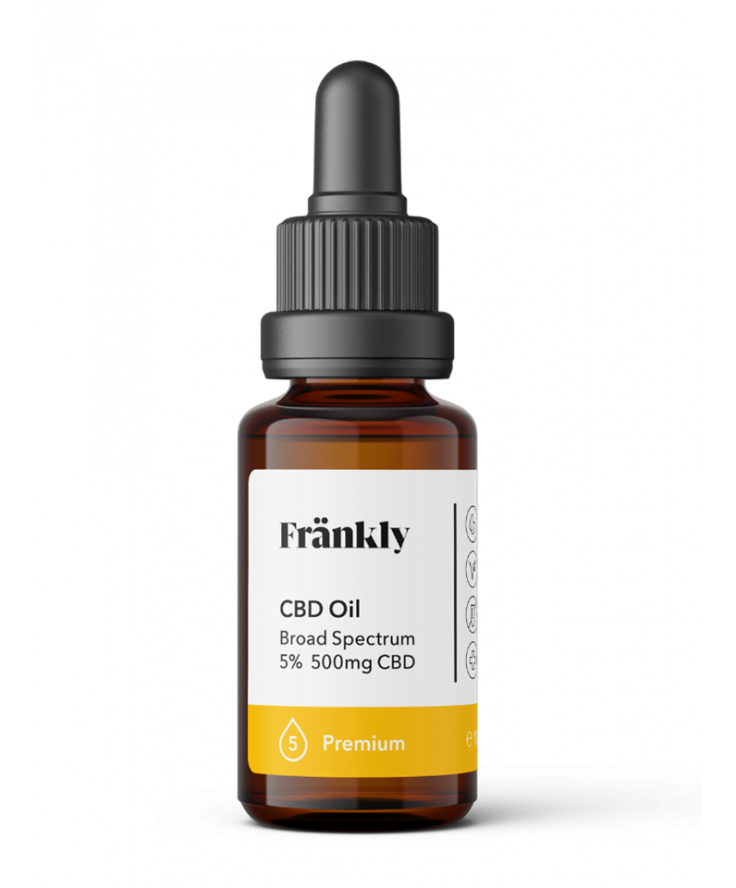Cannabidiol, also known as CBD, is the second most common cannabinoid found in the cannabis plant. THC, also referred to as Tetrahydrocannabinol is the most common. Unlike THC, CBD does not have any psychotoxic properties and therefore it does not give you the ‘high’ feeling that THC does.
-
What is CBD?
-
What is CBD Oil?
CBD oil is extracted from the leaves, flowers and stalks of the cannabis plant. The CBD extract is then mixed with a base like hemp seed oil.
-
Can you get "high" from CBD?
No. CBD does not contain any psychotoxic properties. THC is the psychoactive cannabinoid that makes you feel high. There is CBD oils that may contain traces of THC, but look for pure, isolate CBD products that does not.
-
How long should you keep CBD oil under your tongue?
30 – 60 seconds is advised. The longer you can hold it under the tongue, the better it will be absorbed into the body.
-
Can you overdose on CBD?
It is highly unlikely to overdose on CBD. Taking high doses of CBD has shown to be safe. But taking too much CBD can have some unpleasant side effects such as drowsiness and lethargy (lack of energy and unresponsiveness).
-
What are common uses for CBD?
CBD is commonly used for relief of minor symptoms related to pain and inflammation, restlessness, sleeplessness, anxiousness and depression. Many people use CBD simply to improve their well-being.
-
Is CBD 100% natural?
Yes. CBD is found in the cannabis plant and sourced from its flowers, leaves and stalks.
-
What are cannabinoids?
Cannabinoids such as CBD and THC are the chemical compounds found in the cannabis plant. They work by imitating compounds our bodies naturally produce, called endocannabinoids, that affect nerve, brain and immune cell activity.
-
What is the difference between CBD oil, Hemp oil and Hemp Seed oil?
Hemp oil is the name given to any oil extracted from the hemp plant; CBD oil is an oil containing high amounts of CBD, made from either the hemp or the cannabis plant. While a lot of CBD oil is also considered hemp oil, not all hemp oil is CBD oil; Hemp Seed Oil is made from the seeds of the hemp plant and does not contain any cannabinoids.
-
Will CBD interact with my other medications?
At low doses of CBD (less than 150mg total per day), it is unlikely that significant drug-herb interactions will occur. However it is always possible that drug-herb interactions can occur, and this is more likely the higher the dose. CBD and other plant cannabinoids can potentially interact with many pharmaceuticals by inhibiting the activity of cytochrome P450, a family of liver enzymes. If you are taking a medication where maintaining a certain blood level is critical - such as anti-seizure, anti-viral, blood-thinning medications - talk with your health care provider or pharmacist before trying CBD.
-
Does CBD affect appetite?
CBD has little to no effect on one's appetite. However, CBD does help to ensure a better night's uninterrupted sleep. This in turn has a positive effect on one's appetite and diet, such as less cravings for sugar.
Our Oils
Finest Organic Hemp Extract
Join Fränkly.
Receive our latest news, offers, promotions and upcoming product launches.
We promise not to share any of your information with anyone and we won’t bombard you with emails you don’t have time to read (only good ones!).



